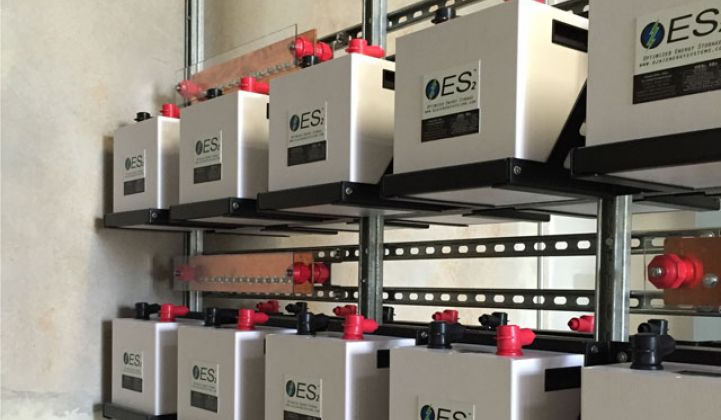When Stuart Lennox was looking for a cool bicycle to feature in a commercial shoot back in 2001, he became smitten with Lee Iacocca’s e-bike.
But it wasn’t just the design of the folding electronic bike that caught his attention.
“I was so impressed with the battery in it, I took out a loan on my home,” recalls Lennox, the CTO and founder of SimpliPhi Power. He then had six custom battery prototypes made to power 35-millimeter movie cameras and portable lighting.
After supplying his LibertyPak power solutions to film shoots around the world for more than a decade, Lennox’s company has morphed into SimpliPhi Power. The startup has broadened its scope beyond Hollywood to sell its lithium-ion ferrous phosphate batteries for residential, commercial and military applications.
Although SimpliPhi has only been operating outside of Hollywood for a few years, it already counts some marquee customers among its clientele, from Whole Foods to the U.S. Department of Defense.
“What we’ve been able to do is create what were initially custom products that are now off-the-shelf,” said SimpliPhi CEO Catherine Von Burg.
Low heat, long lifecycle
The company is building 2.6- and 3.4-kilowatt-hour batteries using lithium-ion iron-phosphate power cells from various vendors, many of which they have worked with closely for years. “We are cell-agnostic,” said Von Burg.
Originally, the LibertyPaks used a lithium-cobalt-oxide chemistry, but the thermal properties were less than ideal, especially for batteries that people might be wearing.
Lithium-phosphate batteries may not hold as much energy, but they have none of the overheating issues of some other battery chemistries. Also, they have a far longer lifespan, up to 5,000 cycles. Other companies, from Sony to 24M, are also investing in lithium-iron-phosphate batteries for grid applications given their long life span.
SimpliPhi has a proprietary configuration of the internal battery pack, said Von Burg, including a unique arrangement of the cells and specific welding techniques, which allows for a better flow of electrons.
The company then adds in its own power electronics to manage the unique architecture. The power electronics are tailored for each application, whether it’s a battery belt for movie shoots or a military-grade power pack.
From LA to Nicaragua
When it comes to power needs, the military and film studios have very different goals but similar requirements. They are both often engaged in activities in harsh, isolated environments where safety and durability are key.
The company says the lack of heat makes the chemistry a great solution not only for Hollywood applications, such as in the suits worn for the movie Tron, but also for the military, where soldiers may need portable and flexible batteries in hot environments.
SimpliPhi worked with partner ZeroBase Energy to provide the U.S. Army with energy storage for forward positions in Nicaragua that eliminated generator reliability concerns and allowed soldiers to focus on tasks other than refueling and maintaining generators.
ZeroBase was also a partner for SimpliPhi’s deployment with the Los Angeles Department of Water and Power at its off-grid environmental monitoring station. LADWP is the first utility to use SimpliPhi.
For residential and commercial applications, the lack of heat means that there is no need for ventilation or cooling, making the full lifetime cost of energy cheaper than many other battery solutions, said Von Burg.
SimpliPhi has installed about 5 megawatts of capacity to date, more than 60 percent of which is residential. LibertyPaks for film shoots still account for nearly 20 percent of the business.
The average residential installation comprises about six to eight 2.6-kilowatt-hour batteries, but that can be scaled up. One homeowner installed more than 100 kilowatt-hours of power storage to completely offset his electrical load, but “that’s unusual,” said Von Burg.
The energy storage startup is working with various solar installers, such as New York-based Lotus Energy, and also commercial market partners such as Schneider Electric, which has been testing SimpliPhi’s batteries for two years and reports a 98 percent round-trip efficiency rate.
The startup says that future partnerships, maybe even with other energy-storage solutions providers, are a possibility. “A competitor can quickly become a partner,” acknowledged Von Burg.
The company expects the residential market to continue to account for the majority of its business. There are also plans for international expansion in the near term.



